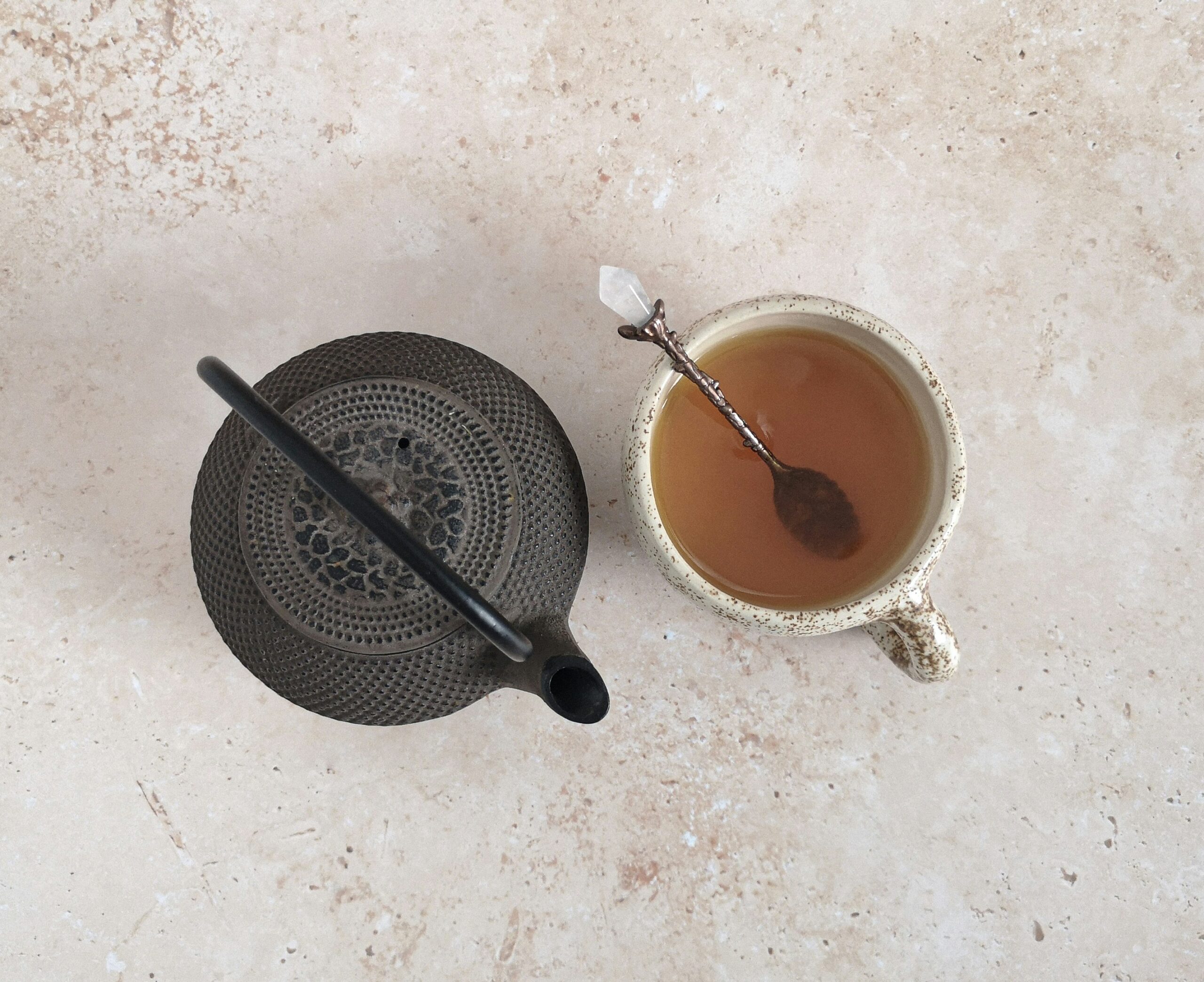Nerve pain sucks! A pinched nerve in the neck can cause significant discomfort and disrupt your daily activities. Good news here! Fortunately, several effective home remedies for pinched nerve in neck can help reduce pain and promote healing for nerve treatment. Simple strategies such as applying ice packs and gentle stretching exercises can provide substantial relief.


Addressing the underlying causes of a pinched nerve, such as poor posture or repetitive strain, is crucial for long-term management. Making changes to your work environment or daily habits can prevent future issues. It is essential to listen to your body and avoid activities that exacerbate your symptoms.
In addition to these remedies, over-the-counter medications can help manage pain and inflammation. If your symptoms persist or worsen, it’s important to consult healthcare professionals for further guidance.
Key Takeaways
- Apply ice packs and perform gentle stretches.
- Improve posture and adjust daily habits.
- Consult professionals if symptoms persist.
WHAT ARE WE TALKING ABOUT TODAY?
- Understanding a Pinched Nerve in the Neck
- Initial Home Remedies
- Medications
- Exercises and Stretching
- Improving Posture
- Alternative Treatments
- Consulting Healthcare Professionals
- Lifestyle Adjustments
- Long-Term Management
- Possible Complications and When to Seek Emergency Care
Understanding a Pinched Nerve in the Neck
A pinched nerve in the neck, also known as cervical radiculopathy, occurs when a nerve root in the cervical spine is compressed. This condition can cause significant neck pain and discomfort. Understanding the causes and recognition of the symptoms can aid in early diagnosis and effective management.
Etiology and Risk Factors
A pinched nerve in the neck can result from several factors. Common causes include a herniated disc, where the disc material presses on the nerve root, and degenerative changes in the spine due to ageing. Conditions like arthritis can lead to bone spurs that also compress the nerves.
Repetitive activities or holding certain positions for prolonged periods can contribute to nerve compression. Risk factors include poor posture, injury, and conditions like obesity that put extra strain on the cervical spine. Chronic diseases such as diabetes can also make you more prone to nerve damage and compression due to poorer nerve health.
Symptoms and Diagnosis
Symptoms of a pinched nerve in the neck can vary. Common signs include neck pain that radiates to the shoulder and arm, numbness, or tingling in the fingers. Muscle weakness in the arm or hand is also typical. It’s crucial to seek medical advice if you experience these symptoms.
Diagnosing cervical radiculopathy often involves magnetic resonance imaging (MRI) or an x-ray to pinpoint the cause of the compression. These imaging techniques help visualise vertebrae, discs, and the spinal cord. Electromyography (EMG) may also be used to assess the electrical activity of muscles and nerves. These diagnostic tools are essential in devising an appropriate treatment plan.
Initial Home Remedies
When dealing with a pinched nerve in your neck, it’s important to start with measures that reduce pain and inflammation while providing support to the affected area. The following strategies can assist in alleviating symptoms and promoting recovery.
Rest and Immobilisation
Rest is critical. It allows the inflamed nerve to heal. Avoid activities that strain your neck or shoulders. Using a soft cervical collar can help immobilise the neck, providing support and reducing movement that might aggravate the nerve.
Limit wearing the collar to short periods. Prolonged use can lead to muscle weakening. Gentle neck stretches can also help maintain flexibility without stressing the nerve.
Pain relief is essential. Over-the-counter NSAIDs (nonsteroidal anti-inflammatory drugs) like ibuprofen can reduce inflammation and provide relief from discomfort.
Alternate Heat and Ice Application
Alternate heat and ice applications are effective in managing pain from a pinched nerve. Cold compresses or ice packs can reduce inflammation and numbing pain. Apply for 15-20 minutes several times a day.
After the initial inflammation decreases, heat packs can be used. Heat promotes blood flow, which aids in the healing process. Use a heat pack or warm towel for 15-20 minutes.
Alternating between ice and heat may provide ongoing pain relief and reduce stiffness. Ensure a barrier, such as a cloth, is placed between the skin and the cold or heat source to prevent burns or frostbite. This method can be very effective when consistently applied.
Medications
Using medications can provide substantial relief for individuals suffering from a pinched nerve in the neck. There are both over-the-counter options and prescriptive medications that can alleviate symptoms, reduce inflammation, and manage pain effectively.


Over-The-Counter Choices
When experiencing a pinched nerve in your neck, Nonsteroidal Anti-Inflammatory Drugs (NSAIDs) like ibuprofen and aspirin can be particularly effective. These medications work by reducing inflammation and providing pain relief. It’s important to follow the dosage instructions on the packaging to avoid any side effects or overdose.
Paracetamol is another commonly used over-the-counter pain reliever that can help manage the pain associated with a pinched nerve. Although it is not an anti-inflammatory, it can be effective for pain management. Topical creams containing menthol or capsaicin can be applied to the neck area to provide temporary pain relief through a cooling or warming sensation.
Prescriptive Options
If over-the-counter medications are insufficient, your doctor may recommend oral corticosteroids. These potent drugs can reduce inflammation and immune response, providing relief from severe symptoms. Typically, corticosteroids are prescribed for a short period due to their potential side effects.
For more targeted relief, steroid injections might be administered directly into the affected area. These injections can provide rapid and significant pain relief and reduce inflammation around the pinched nerve. Your healthcare provider may also prescribe stronger pain relieving medications like muscle relaxants or narcotics, especially if muscle spasms are contributing to your discomfort.
Common Prescriptive Options
- Oral corticosteroids
- Steroid injections
- Muscle relaxants
- Narcotics
Always consult your doctor before starting any new medication to ensure it is appropriate for your condition and health status.
Exercises and Stretching
Working on exercises and stretching can provide effective relief for a pinched nerve in the neck. Improving range of motion, strengthening muscles, and reducing compression are key strategies.
Gentle Stretching
Gentle stretching can help alleviate the discomfort associated with a pinched nerve by relieving tension. One useful stretch is the chin tuck. To perform this, sit or stand up straight and gently pull your chin back as if trying to create a double chin. Hold for 5-10 seconds and repeat 10 times.
Another beneficial stretch is the head turn. Slowly turn your head to the left until you feel a gentle stretch. Hold for 5-10 seconds and then turn to the right. Repeat this 5-10 times on each side to enhance flexibility.
Lastly, try the side-to-side stretch. Sit upright, tilt your head to one side as if touching your ear to your shoulder, and hold for 15-20 seconds. Repeat on the other side. This can help in loosening up the neck muscles.
Strengthening Exercises
Strengthening exercises are crucial to support the neck and prevent further nerve compression. The shoulder blade squeeze is a simple exercise. Sit or stand with your back straight, and gently squeeze your shoulder blades together. Hold for 5 seconds and repeat 10 times.
Another effective exercise is the isometric neck exercise. Place your hand on your forehead and push your head against it without moving your neck. Hold for 5 seconds and repeat 5-10 times. You can also do this exercise by placing your hand on the side of your head to work the lateral neck muscles.
Including these exercises in a daily routine can help maintain neck strength and flexibility, reducing the risk of future pinched nerves.
Improving Posture
Better posture can significantly alleviate tension and discomfort related to a pinched nerve in the neck. Incorporating proper ergonomics and postural exercises into your daily routine is essential.
Proper Ergonomics
To improve your posture, start with proper ergonomics at your workspace. Ensure your chair supports your lower back and encourages a straight spine. Adjust your computer monitor so that it is at eye level, which helps in maintaining a neutral neck position.
Make sure your desk height allows your elbows to bend at approximately 90 degrees. This setup reduces strain on your shoulders and neck. Use a supportive cushion if needed and keep your feet flat on the floor or on a footrest.
When walking or standing, maintain an upright posture. Distribute your weight evenly on both feet and avoid slouching. Simple adjustments like these can make a big difference in preventing poor posture and the associated back pain and neck tension.
Postural Exercises
Regular postural exercises can strengthen the muscles supporting your neck and back. Start with chin tucks, where you gently pull your chin back to align your ears with your shoulders. This exercise helps in rectifying a forward head posture.
Incorporate shoulder blade squeezes into your routine. Sit or stand tall and squeeze your shoulder blades together. Hold for a few seconds and release. This exercise reinforces proper shoulder alignment and reduces upper back tension.
Wall angels are another effective exercise. Stand with your back against a wall, feet a few inches away, and slowly move your arms up and down against the wall like making snow angels. This enhances shoulder mobility and posture.
By integrating these exercises into your daily regimen, you can significantly improve your posture and reduce the incidence of a pinched nerve in the neck.
Alternative Treatments
When dealing with a pinched nerve in the neck, alternative treatments such as massage therapy, chiropractic adjustments, and acupuncture can provide significant relief by reducing pain and improving mobility.
Massage Therapy
Massage therapy involves manipulating soft tissues to alleviate tension and pain. For a pinched nerve in the neck, specific techniques like Swedish massage or deep-tissue massage can be particularly effective.
Benefits:
- Improves blood circulation
- Reduces muscle stiffness
- Enhances overall relaxation
Focusing on the neck and shoulder areas, a trained massage therapist can help release the pinched nerve by loosening tight muscles and fascia. Regular sessions combined with home exercises can boost long-term recovery.
Chiropractic Adjustments
Chiropractic care focuses on realigning the spine to reduce nerve pressure. For neck issues, chiropractors use techniques like cervical manipulation to improve spinal function and alleviate pain.
Key Procedures:
- Spinal adjustments
- Traction therapy
- Physical therapy exercises
These treatments aim to restore normal alignment, reducing nerve compression. A chiropractor may also provide advice on posture adjustments and ergonomic solutions to prevent recurrence. It’s essential to consult a qualified chiropractor for personalised care.
Acupuncture
Acupuncture involves inserting thin needles into specific body points to relieve pain and improve healing. This ancient practice can be particularly beneficial for nerve-related conditions.
Advantages:
- Reduces inflammation
- Enhances blood flow
- Promotes natural pain relief
By targeting areas around the neck, acupuncture can help relieve the pressure on the pinched nerve, providing symptomatic relief. Sessions typically last for 30-60 minutes, and the combined use of acupuncture with other treatments can offer more comprehensive pain management.
Consulting Healthcare Professionals
Consulting with healthcare professionals can provide you with a tailored treatment plan for a pinched nerve in your neck. Expert advice from doctors or physical therapists ensures the best approach, whether it’s through non-invasive methods or more intensive treatments like surgery or steroid injections.
When to See a Doctor
Seeking medical advice is crucial if you experience severe pain, muscle weakness, or numbness that affects your daily activities. A doctor can diagnose the severity of your condition through physical examinations or imaging tests like MRI or CT scans.
If your symptoms persist or worsen despite home remedies, it’s time to consult a physician. Severe cases might require treatments like steroid injections to reduce inflammation. In rare instances, surgery might be necessary to relieve nerve compression.
Physical Therapist Guidance
Physical therapists provide exercises and techniques to alleviate pressure on the affected nerve. They design specific routines to strengthen muscles and improve posture, reducing the likelihood of future nerve issues.
During sessions, physical therapists use manual therapy and stretching exercises to relieve pain. They might also recommend ergonomic adjustments in your daily activities to prevent further strain on your neck. Regular follow-up and adherence to the prescribed exercise regimen are key to optimal recovery.
Lifestyle Adjustments
Making specific changes to your daily activities and maintaining a healthy weight can greatly alleviate the discomfort of a pinched nerve in the neck.

Activity Modification
Engaging in gentle exercises and avoiding movements that strain your neck are crucial. Walking and low-impact activities such as swimming can help maintain flexibility and reduce pain. It’s important to avoid heavy lifting or repetitive movements that could exacerbate your condition.
Incorporating ergonomic changes in your home and work environments can also make a significant difference. Use ergonomic chairs and maintain a proper posture while sitting or standing. Stretching exercises tailored to your needs can help relieve tension and improve mobility.
If you suffer from arthritis, a carefully designed exercise routine can improve neck function and decrease pain. Make sure to break up long periods of inactivity with short walks or light movement to avoid stiffness.
Weight Management
Maintaining a healthy weight reduces the strain on your spine and neck, improving your overall comfort. Extra weight can increase the pressure on your nerves, making it essential to manage your weight effectively.
A balanced diet rich in fruits, vegetables, lean proteins, and healthy fats supports weight loss and overall health. Drinking plenty of water and staying hydrated also contribute to your joint health and can reduce pain associated with pinched nerves.
Regular physical activity combined with dietary adjustments will help you achieve and maintain a healthy weight. Consider activities like walking, which are easy on the joints and can be incorporated into your daily routine.
Long-Term Management
Addressing a pinched nerve in the neck requires both immediate relief and long-term management to ensure sustained improvement. Key strategies include maintaining neck health and preventing future nerve compression through a combination of lifestyle changes and therapeutic interventions.
Maintaining Neck Health
Maintaining neck health involves regular exercise, proper posture, and physical therapy. Exercise is crucial to strengthen neck and upper back muscles, which support proper spinal alignment. Incorporate daily stretches aimed at enhancing mobility and relieving muscle tension.
Posture plays a significant role in neck health. Be mindful of your posture during activities such as sitting, standing, and sleeping. Use ergonomic furniture and maintain a neutral spine position to avoid strain. Regular breaks and adjustments in your posture prevent the cumulative stress that can lead to chronic pain.
Physical therapy is recommended over the long term. A trained therapist can guide you through specific exercises that improve range of motion and strengthen support muscles. Cervical traction may also be suggested to gently stretch and reduce pressure on the cervical spine.
Preventing Future Nerve Compression
Preventing future nerve compression involves lifestyle adjustments and periodic health evaluations. Rest is important—allow your body to recover from daily stresses and physical activity. Balancing activity with adequate rest helps maintain your spine’s health.
Ergonomics in your daily environment is crucial. Whether you work at a desk, drive for long periods, or engage in hobbies that strain your neck, ensure that your setup maintains proper alignment. Adjust the height of monitors, chairs, and workstations to reduce undue stress on your neck.
Regular check-ups with healthcare providers, including physiotherapists, ensure that any potential issues are caught early. Employ pain relief strategies such as heat or ice packs and occasional use of pain relief medications as advised by your healthcare provider. These measures together help prevent recurrent issues and promote long-term neck health.
RELATED: How To Sleep Better With Herbal Medicine: Top Herbs To Relieve Your Sleep Disorder
Possible Complications and When to Seek Emergency Care
Pinched nerves in the neck can lead to various complications if not properly managed. These complications may include pain, nerve damage, and muscle weakness.
Signs of Serious Nerve Damage
Serious nerve damage can manifest through several symptoms. You may experience chronic pain that doesn’t respond to usual pain relief methods. This pain might be accompanied by a persistent burning sensation or tingling in your neck, shoulders, or arms.
Loss of sensation or numbness in your extremities can make it difficult to perform daily activities. In severe cases, muscle weakness can occur, leading to a significant reduction in strength and mobility.
If you notice these symptoms persisting or worsening over time, it could indicate severe nerve damage requiring urgent medical evaluation.
Indications for Immediate Medical Assistance
Immediate medical assistance is necessary when certain critical signs appear. If you suffer sudden, severe pain that radiates down your arm and isn’t relieved by typical pain relief techniques, seek help urgently.
Unexpected muscle weakness or loss of sensation in your arms or hands are also red flags. Furthermore, if you experience sudden numbness or a burning sensation that impairs your ability to move or function normally, see a doctor without delay.
In addition, any chronic pain that disrupts your sleep or daily routines despite home remedies should prompt a visit to a healthcare provider. Immediate intervention may prevent further complications.



Comments +